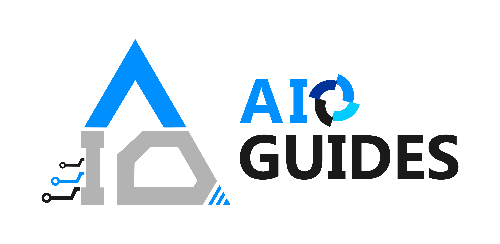Beginner’s Guide to Programming: Explore Coding Features

Introduction to Programming
What is Programming?
Programming is the art of recounting a computer what to do. It’s like penning a formula for your computer to observe. You use a explicit vocabulary, like Python or Java, to write schooling that the computer comprehends and manages.

Importance of Learning Programs
In today’s digital world, programs are a superpower. It flares entrances to miscellaneous occupations, helps in decrypting complex crises, and permits you to create incredible things from the amenity of your home.
Choosing Your First Program Language
Choosing your first program’s speech is a vital phase in your travel as a designer. Think what you want to assemble and the tongues primarily used in that area, whether it’s web development, portative apps, or data science.

Popular Programs Languages for Beginners
There are several languages out there, but some are more beginner-friendly. Python, for example, is known for its clarity. JavaScript is terrific for web development, and Java is widely used in corporate surroundings.
Factors to Consider When Choosing a Language
Believe in what you enjoy accomplishing. Web development? Mobile apps? Each field has preferred languages. Also, consider the language’s community support and learning resources available.
Setting Up Your Development Environment
Setting up your development environment is about equipping yourself with the right tools – a code editor, the necessary compilers or interpreters, and any relevant development platforms. This tailored environment will be your workspace for writing, testing, and debugging code.

Essential Tools and Software
To start coding, you’ll need a code editor like Visual Studio Code or Atom, and depending on your language choice, specific development tools and software.
Creating Your First Project
Start simple. Create a “Hello, World!” program. This traditional first project is a great way to get familiar with your development environment.
Basic Programming Concepts
Basic programming concepts include understanding variables and data types and maintaining installations like loops and dependent statements. These foundational elements form the formation obstructions of any programming language, guiding how you structure and execute code.

Understanding Variables and Data Types
Variables are like storage boxes for information. Data types define the kind of data you can store, like numbers, text, or boolean values.
Control Structures: Loops and Conditional Statements
Control structures guide your program’s flow. Loops repeat actions, and conditional statements (like ‘if’ statements) help your program make decisions.
Writing Your First Program
Writing your first agenda is a exciting juncture; it commonly begins with a easy task like expressing “Hello, World!” on your mesh. This initial step familiarizes you to the basics of coding system, syntax, and the procedure of executing a timetable.

Step-by-Step Guide to Building a Simple Program
Let’s construct an uncomplicated calculator. You’ll input two numerals, prefer an function (like spare), and the schedule will output the upshot.
Debugging and Troubleshooting
Are you encountering errors? Don’t panic. Debugging is part of the process. Read error messages carefully, and use online forums for help.
Advancing Your Program Skills
You are advancing your program’s skills and interests by studying more tricky images like positions, object-oriented programs, and data networks. It’s about exacerbating your account, purifying your code, and attacking more demanding tasks to improve your mastery and problem-solving capacities.

Learning About Functions and Modules
Functions are reusable blocks of code. Modules are like folders that organize your functions and variables into a neat package.
Introduction to Object-Oriented Programs
Object-Oriented Programs (OOP) is a vision where you devise your legend almost ‘objects’ – real-world commodities like users, consequences, or benefits.
Exploring Further: Web Development, Mobile Apps, and More
Exploring further into areas like web development and mobile app creation opens up a world of opportunities to apply your programs skills creatively and practically. These fields demand an excellent grasp of specific languages and frameworks, and they offer endless possibilities for innovation and user engagement.

The World of Web Development
Web development concerns constructing websites and web applications. It’s a creative and highly in-demand skill.
Creating Mobile Applications
Mobile app development is another exciting avenue. Whether it’s for Android or iOS, you can create apps that millions could use.
Joining the Program Community
Joining the program community unites you with like-minded someones, from newbies to professionals, showing a medium for knowledge, cooperation, and help. Engaging with these residents through media, social media, and local protests can seriously sweeten your educational background and open up new options.

Engaging with Online Forums and Local Groups
Join forums like Stack Overflow or Reddit’s programs communities. Local meetups and hackathons are also great for networking.
Contributing to Open Source Projects
Working on open-source projects can boost your skills and portfolio. It’s collaborative and gives you a taste of real-world coding.
Resources for Continued Learning
Resources for resumed comprehending programming are generous, varying from online tutorials and lessons to encyclopedic books and interactive coding outlets. These aids cater to all stations, permitting you to stay modernized with the latest technologies and distill your talents constantly.

Online Courses and Tutorials
Venues like Coursera, Udemy, and freeCodeCamp deliver a prosperity of routes that vary from novice to state-of-the-art groups.
Recommended Books and Guides
Books like “Automate the Tedious Capability with Python” or “Eloquent JavaScript” are fantastic resources to deepen your understanding.
Conclusion: The Journey Ahead in Programming
Program is a journey of continuous learning. Embrace challenges, stay curious, and keep building. The sky’s the limit!
FAQs of Beginner’s Guide to Programming: Explore Coding Features
How long does it take to know programming?
It changes, but with an even course, you can learn the basics in an occasional month.
Can I learn programming online for free?
Yes, there are countless free aids like Codecademy and freeCodeCamp.
Do I need a grade in computer science to be a programmer?
No, many triumphant programmers are self-taught or have non-CS phases.






